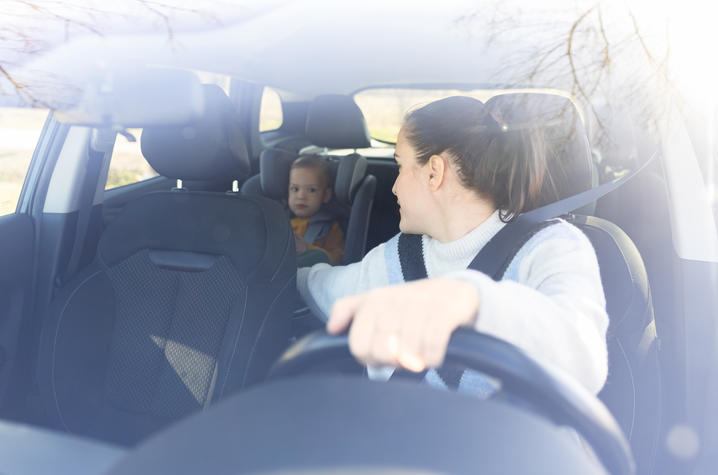‘Look before you lock’ to prevent hot car deaths

The University of Kentucky Public Relations and Strategic Communications Office provides a weekly health column available for use and reprint by news media. This week’s column is by Sherri Hannan, Kentucky Children's Hospital nurse and coordinator for Safe Kids Fayette County.
LEXINGTON, Ky. (May 27, 2025) — Summer is nearly here, bringing with it hot, sunny days. And nowhere do you feel those hot temps more than in the car. A hot car is more than just uncomfortable — it can be deadly to small children.
On average, a child dies from heatstroke every nine days. In more than half of these deaths, the caregiver forgot the child was in the car. Parents, family members and babysitters all believe this could never happen to them. But in most cases, responsible caregivers simply forgot the child was in the car. A change in routine, stress or distraction can all play a role.
Heatstroke happens faster than you think. Even on a mild day, the temperature inside a car can rise quickly, by as much as 19 degrees in just 10 minutes. Cracking the window, parking under a tree or placing a reflective shade in the windshield does very little to cool a car.
Young children are particularly susceptible to heatstroke; they have a smaller body surface area and a higher metabolic rate, which makes it easier for them to overheat. A child’s body heats up three to five times faster than an adult. When a child’s body temperature rises above 104 degrees Fahrenheit, organ damage, coma and death are possible.
Reduce the number of deaths from heatstroke by remembering to ACT:
- Avoid heatstroke-related injury and death by never leaving a child alone in a car, not even for a minute. And make sure to keep your car locked when you’re not inside so kids don’t get in on their own.
- Create reminders. Keep a stuffed animal or other memento in your child’s car seat when it’s empty and move it to the front seat as a visual reminder when your child is in the back seat. Or place and secure your phone, briefcase or purse in the backseat when traveling with your child. Additionally, you can create location-based reminders in your phone to alert you to check the backseat when you arrive at your destination.
- Take action. If you see a child alone in a car, get them out as quickly as possible and dial 911 immediately. Emergency personnel are trained to evaluate and check for signs of heatstroke.
In some cases, children climb into unlocked cars and become trapped, so it’s important to keep your car locked when it’s not in use. Keep keys and remote entry fobs out of children’s sight and reach. Teach children that cars are not a place to play.
Heatstroke can be fatal, and any responsible, loving and attentive adult can be subject to momentary lapses in attention or judgment. Never leave a child alone in a car, even if just for a few minutes. Together, we can protect children by staying alert and spreading the message.
UK HealthCare is the hospitals and clinics of the University of Kentucky. But it is so much more. It is more than 10,000 dedicated health care professionals committed to providing advanced subspecialty care for the most critically injured and ill patients from the Commonwealth and beyond. It also is the home of the state’s only National Cancer Institute (NCI)-designated Comprehensive Cancer Center, a Level IV Neonatal Intensive Care Unit that cares for the tiniest and sickest newborns and the region’s only Level 1 trauma center.
As an academic research institution, we are continuously pursuing the next generation of cures, treatments, protocols and policies. Our discoveries have the potential to change what’s medically possible within our lifetimes. Our educators and thought leaders are transforming the health care landscape as our six health professions colleges teach the next generation of doctors, nurses, pharmacists and other health care professionals, spreading the highest standards of care. UK HealthCare is the power of advanced medicine committed to creating a healthier Kentucky, now and for generations to come.




